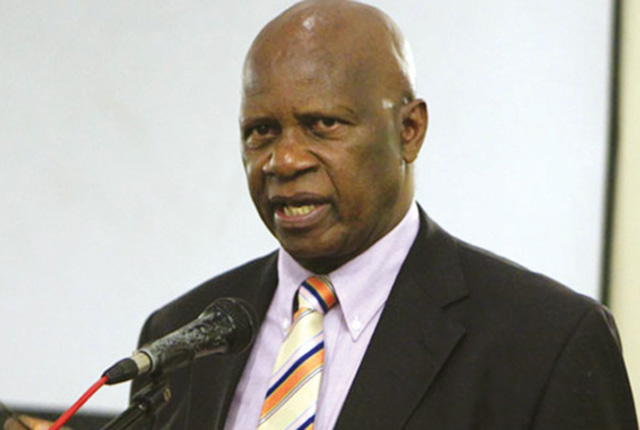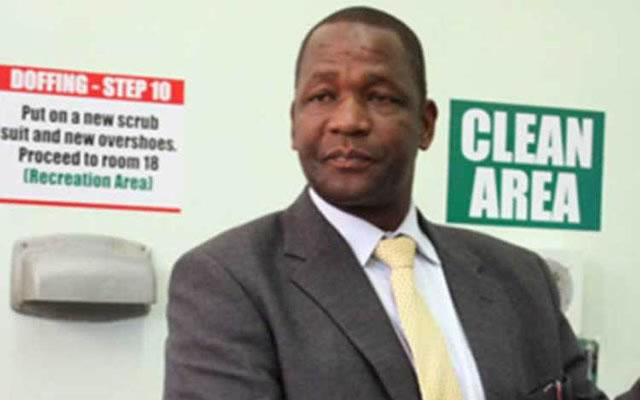THERE is nothing new about public relations. Although communications management can be identified in the politics of the ancient world, it is possible to trace the history of PR itself back to the 19th century, when some academics argue that it was used by anti-slavery campaigners. The first “publicity bureaus” were set up in the UK in the early 1900s and PR techniques were used by all sides in the First World War.
However, it was not until the early 1920s that private sector companies began to use publicity bureaus, first in the US and then in Western Europe. PR was often known as propaganda prior to the Second World War but its use by the Nazis saw the term “propaganda” quickly disappear from the industry and turn into a form of abuse.
Since then, propaganda and PR have been regarded as distinct entities. The Chief Creative Officer of US firm Daly-Swartz Public Relations, Alan Graner, says: “Propaganda uses lies, half-truths, innuendo, smears, misinformation, one-sided arguments and inflammatory rhetoric to influence the public’s attitude . . . Propaganda’s underlying philosophy is us against them. ‘They’ are often denigrated as undesirables or simply ‘the enemy’. Public relations uses truth if, for no other reason, their claims can be checked. PR relies on logic, facts and sometimes emotions to spread information.”
By these definitions, it can surely be argued that US President Donald Trump employs political propaganda. The downside Negative views of the PR industry as a whole are fuelled by the tendency of some big corporations to use agencies to deflect attention away from damaging commercial activities. It has been widely reported that many of the US PR agencies that were involved in blocking anti-tobacco legislation are now working to block or overturn legislation designed to deter carbon consumption. In the main, they do so by creating doubt over an issue: by promoting the view that the evidence over a particular issue – whether that’s tobacco’s role in causing lung cancer, or the fact that current global warming is mainly caused by human activity – is not conclusive.
Agencies have supported their clients by seeking to sustain debates over issues for many years after the scientific evidence pointing in a particular direction has become overwhelming, thereby allowing clients such as cigarette producers and coal mining firms to continue their existing operations. Media outlets are often easy targets for these strategies because debate makes for better discourse – whether on TV, radio or in written media – than consensus. While 99 out of 100 scientists in fields related to climate science may agree that global warming is in large part man-made, pitching one scientist against another makes for a “better” TV debate and by “better” they mean more combative and confrontational.
Negative public views of the industry are also fuelled by the activities of high-profile spin doctors, including the UK’s Alastair Campbell, with his involvement in providing “evidence” to the British public of the presence of weapons of mass destruction in Iraq in order to drum up support for that country’s invasion.
Yet PR can also be used positively. It is a tool used to promote communication between governments, companies and NGOs on the one hand and their citizens, customers, supporters and beneficiaries on the other. When it promotes communication then it can be a force for good. The African PR industry is growing. The University of Nairobi has set up a PR degree programme and the numbers entering the profession are growing, although the lack of regulation makes it difficult to obtain accurate figures. As elsewhere in the world, brand promotion is becoming ever more important, with most large companies having a presence on Facebook, LinkedIn and Twitter. As internet access improves through rising mobile and cable access, the market for local PR companies to promote brand awareness is likely to grow rapidly.
The new generation
On Page 21, we look at the role of the new generation of PR agencies, such as Cambridge Analytica, in the Kenyan presidential elections. By harvesting vast amounts of online data, they are able to target “persuadable” voters, including through social media, which increasing numbers of people rely on as their primary news source.
The news directed at each person, via Facebook for example, is specifically targeted at them and often serves to confirm their own existing view of the world, perhaps only tweaking it in a particular direction. The automated nature of what they see on screen makes it easier to guide them towards a particular viewpoint. It could be argued that the diverse nature of news sources is more liberal, more pluralistic and perhaps even more democratic than when people rely on a single or a handful of news outlets.
It could also be argued that voters have long chosen newspapers that confirm their own view of the world. Yet the use of a much greater number of news providers and the automated nature of much of that news distribution has drastically lowered the bar of journalistic and reporting integrity. Put simply, there is little regulation of standards.
In much the same way, Google has a great deal of control over which news sources you access when you use its search engine. It’s almost as if your newspaper knew which articles you had read and then changed what was on the next page accordingly.
The ways in which the huge and rapidly increasing amounts of data being generated have become a strand of globalisation was not entirely predicted. It is difficult to predict how the situation will evolve over even the next few years, let alone the longer term, but it seems that the distinction between PR and news is fading. The big danger will be if PR, news and politics eventually melt into one amalgamated whole. The big question is how effective PR campaigns are. Sometimes PR agencies are merely used to calm the fears of their clients; others will be more challenging, putting forward arguments that their clients may not wish to hear.
The impact of campaigns is not easily quantifiable. It is becoming more so because of the use of big data but even here, it is not possible to draw a direct correlation between PR “election management” and voting outcomes in cases where voting is by secret ballot, except through opinion polls.
Involvement in Africa
The role of big international PR firms in Africa may now be better known but it is not entirely new. Burson-Marsteller of the US worked for the Nigerian government to deflect claims of genocide in the Biafran War in the 1960s. Yet while the continent has generally moved away from autocratic governments towards democratic systems, governments that want to load the dice in their electoral favour must resort to more subtle methods of “election management”. Many African countries are paying large sums to these organisations, which try to transplant methods used elsewhere to Africa.
While those methods may work, they need to be backed up with local knowledge. The Bell Pottinger scandal highlights why international PR firms may not always be best placed to work on African campaigns. Critics would argue that foreign firms simply don’t know what they are doing and don’t understand the local issues. Bell Pottinger may have employed South Africans to work on its campaign for the Guptas but it did not have a dedicated South African offshoot. It doesn’t seem that Africa is a special case in terms of the activities of PR firms but it has become caught up in the latest global wave of more sophisticated PR.
We will look at the Bell Pottinger case and also the role of PR in Kenya’s controversial elections. Yet it would be wrong to expect outside influences to take all the blame for any wrongdoing. Those paying their bills know what they are signing up to. What such agencies have is a track record for reputational management, including through the use of search engine optimisation. They can help ensure that searches for human rights abuses in a particular country bring up results dominated by attempts to ensure that such abuses do not happen again, rather than the details of what has actually occurred.
Once again the latest PR techniques bring us back to Google and the question, “Who decides what we read?” This is a question that is likely to be increasingly discussed over the next few years.
The obvious questions that come to mind are: “Was this one rogue firm?”, “Is the entire industry at fault?” and “Is there anything about Africa that makes it particularly susceptible?” The answers to those questions are, in turn: “Yes”, “To some extent, yes” and “Probably not”. But we’ll consider these issues in more depth throughout this report. Where Africa does seem to be a special case is that the continent lacks the type of industry associations and regulators that are found in the West. It was the UK’s Public Relations and Communications Association, after all that effectively pulled the plug on Bell Pottinger.
However, South Africa is about to set up its own industry regulator in a move that may be replicated elsewhere on the continent in the long term, although probably not in many countries in the near future because there are too many other demands on each national purse. The onus is also on agencies to decide who to do business with. The president of the Public Relations Institute of Southern Africa (PRISA), Kavitha Kalicharan, advises agencies: “Research your client well in terms of their background, especially if they are high profile. Do proper research before going ahead . . . Also, look at what has been produced in the media about that organisation or individual.”In addition, PR professionals should understand the substance of an issue and situation before deciding how best to spin it to the public. – New African.















